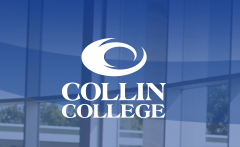Title
Observation as Research in Creative Writing
Presentation Type
Roundtable
Academic Level
2-year school
Location
Conference Room B
Abstract
Panel Chair: Scott Yarbrough
Many consider creative writing, poetry and short fiction, an act of contacting the muse and waiting impatiently for her to strike one blind with inspiration. Creative writing, however, is most often the result of keen observation and recording of the event or epiphany with detail converted to image and story to “showing” rather than “telling.” In other words, observation becomes the art, imitation of real life the food for the appetite of creativity. In this session, single readings will construct a panel of one whole: poems based on observations will be read by the creative writing students who produced them and rewrote them and discussed them and rewrote them again; each reading only one poem. Thus, participants will hear ten to fifteen original poems read back to back, and after, discussion of where and how the poems were discovered will follow. As well as waxing poetic of where the process of creativity and research and observation and inspiration collide.
Abstract Format
html
Observation as Research in Creative Writing
Conference Room B
Panel Chair: Scott Yarbrough
Many consider creative writing, poetry and short fiction, an act of contacting the muse and waiting impatiently for her to strike one blind with inspiration. Creative writing, however, is most often the result of keen observation and recording of the event or epiphany with detail converted to image and story to “showing” rather than “telling.” In other words, observation becomes the art, imitation of real life the food for the appetite of creativity. In this session, single readings will construct a panel of one whole: poems based on observations will be read by the creative writing students who produced them and rewrote them and discussed them and rewrote them again; each reading only one poem. Thus, participants will hear ten to fifteen original poems read back to back, and after, discussion of where and how the poems were discovered will follow. As well as waxing poetic of where the process of creativity and research and observation and inspiration collide.



